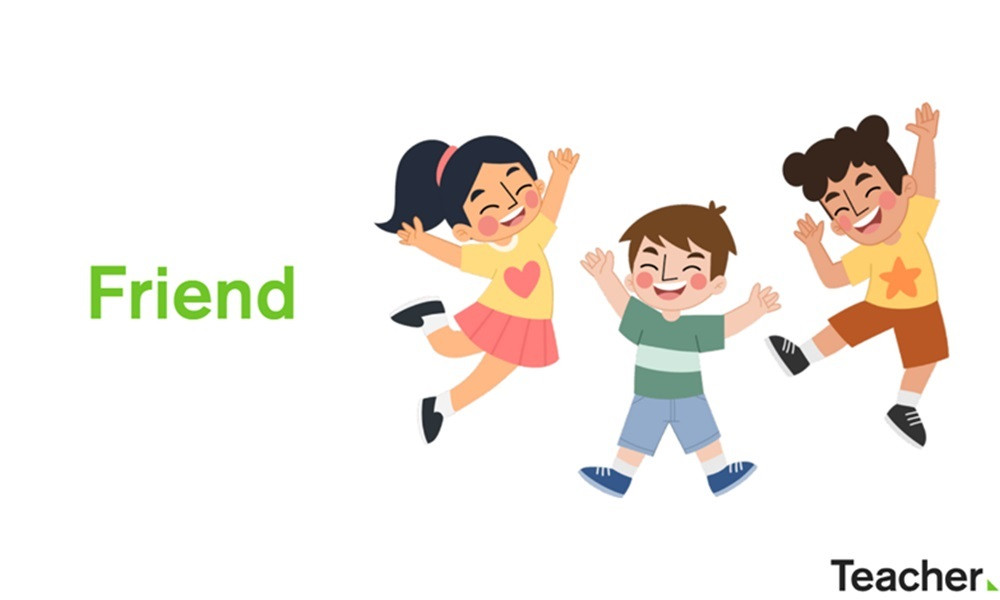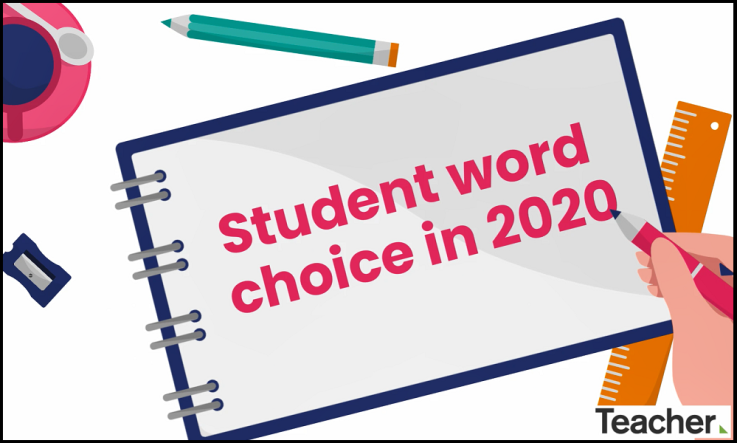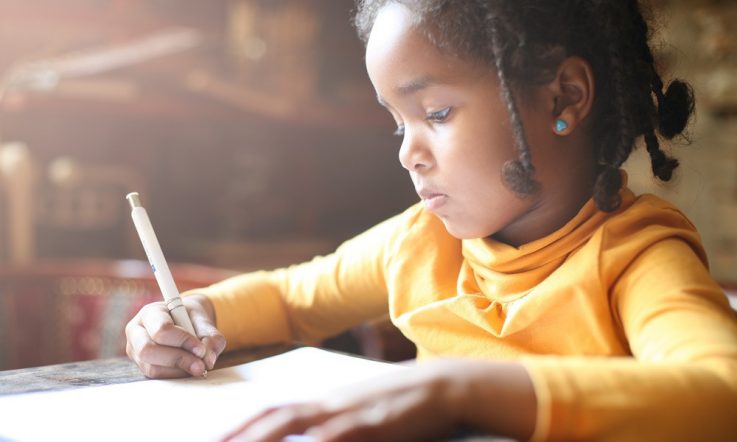As a teacher, knowing the words your students frequently use in their writing can help you understand where to extend their spelling and vocabulary skills.
Oxford University Press has named the Australian Children’s Word of the Year for 2024. Its report reveals the word ‘friend’ was chosen from analysis of over 25,600 stories written by mid- to late-primary aged children in schools across Australia (Oxford University Press, 2025).
‘Students are writing about the value of their relationships with friends and family and the ways in which they connect with others,’ the report reads. ‘In an increasingly digitised world, the connections between people are something students are demonstrating that they value.’
Friend appeared more than 4,500 times across the writing samples. Students wrote about their own friendships, qualities that make a good friend, and the meaning of friendship. Many students also spoke about sport as a way to make friends.
Frequently used words
Eight words were shortlisted for the 2024 Children’s Word of the Year due to their significance of their usage within the dataset. The other 7 were: fact, game, hope, leader, love, play and superpower.
Analysis shows students were using the word ‘fact’ 37% more frequently in 2024 than in 2020-23. The report revealed students are writing about facts as a way to share about their knowledge and understanding of the world. In some cases, writing was persuasive, and facts were used to support arguments.
… do you wanna hear some fun facts about cycling?.Okay first of all cycling helps you build up your leg muscles and will make you stronger , secondly you can make friends doing it. Thirdly it's fun and when you learn how to ride you don't have to get ,your parents ,to take you to school .You can ride your bike everywhere! – Year 3 student*
‘Game’ was written about in a variety of ways – perhaps unsurprisingly, many children wrote about video and online games. However, many also wrote about board games and other physical games, like hide-and-seek. Sport was a common theme here, too, with stories being written about sporting games. ‘Encouragingly, students also appear to be focused on their connections with their friends, and one significant form of connecting within these relationships is through playing games,’ the report reads.
Indoor you can play together with your friends and family. It is a fun think we can do. We can play hide and seek, the floor is lava, and you can play board games. – Year 1 student*
Usage of the word ‘hope’ increased by 28% from 2020-23. The word was used in both a positive and negative way – some students wrote about hopes and dreams, while others wrote about losing hope (however, most ‘lost hope’ was in relation to adventure stories).
As if they knew who and what it was they walked up to the boy.It didn't seem thretening until it turned around and looked them as if to say.Back.Off.He set himself up as if to try and charge them like a raging bull.The girls sreamed and then started running for there lives.But the boy was way faster than them.They had no chance off escape their only hope was to sream their hearts out for someone to come and help them.But still it was no use over the boy houling at the top of his lungs. – Year 4 student*
Students who wrote about a ‘leader’ tended to write about a good or strong leader and the impact of a leader.
If i were a leader for a day l would end world hunger and make sure that all the poor get some money.I would make some homes for the poor. - Year 3 student*
When they wrote about ‘love’, it was often in association with the broader theme of connection and when discussing the things they love.
I love summer. I go to my nan and pops house and go on the boat. It can get really hot in summer so you shuld wer a hat and sunscren or you will sizzle. – Year 1 student*
The word ‘play’ had a strong association with usage of the word ‘friend’. ‘Playing with friends, pets, playing games and having fun are the most frequent ways students were writing about the word. Sporting contexts also appeared, as well as school plays,’ the report reads.
… One of my absoulte favourite sports is defintly soccer. It so fun to play with friends, and my teamates are always very suportive! Soccer is a team sport involing 11 players on each side of the feild who use their legs, head and torso to pass the ball and score amazing goals! When ever I get a goal the croud roars in exitment, all my teamates run up to me and give me a huge bear hug! Scoring goal always gets my energy level up, and it makes my confidence heeps better! … – Year 5 student*
Finally, ‘superpower’ was often used in relation to helping or saving people.
What superpower would you choose? Mine would be helping people. I choose is superpower because I can heel people if they sick or like if they are underwater and drown I can save them – Year 1 student*
Popular writing themes
Four popular themes emerged from analysis of the trending words for 2024.
- Connection/social emotional learning
- Fantasy, adventure and magic
- Society and learning
- Animals/environment and nature
Watch our new video infographic on these 4 themes below to find out more:
Slang words popular with children
Some words experienced an increase of over 30,000% when compared to the 2020-23 data. Interestingly, they were slang words, namely ‘sigma’ and ‘skibidi’. Words related to friendship also appeared in slang form, for example, ‘bff’ and ‘bestie’.
‘Language and its usage are significantly influenced by social media and online content consumption with global reach through an increasingly digitally interconnected world. The upward trend is likely influenced by students’ engagement with viral memes, YouTube videos and social media platforms such as TikTok and Instagram,’ the report explains.
Trending words over time
Changes from 2023 were also observed in this report. While usage of the 2023 Children’s Word of the Year, cost, was used 5% less frequently in 2024, associated words with this theme increased dramatically. For instance, discount (up 233%), sale (up 83%) and price (up 71%).
At Teacher, we’ve reported on the past Children’s Words of the Year: the 2023 word, ‘cost’; the 2022 word, ‘privacy’; the 2021 word, ‘power’; and the 2020 word, ‘virus’.
*Quotes reproduced verbatim
References
Oxford University Press. (2025). Oxford's Australian Children's Word of the Year 2024. https://www.oup.com.au/primary/2024-childrens-word-of-the-year.
As a primary school teacher, reflect on the 4 themes to emerge from this research. Do students in your class demonstrate interest in these themes?
How could you engage and extend students in these areas through reading, writing and spelling?



